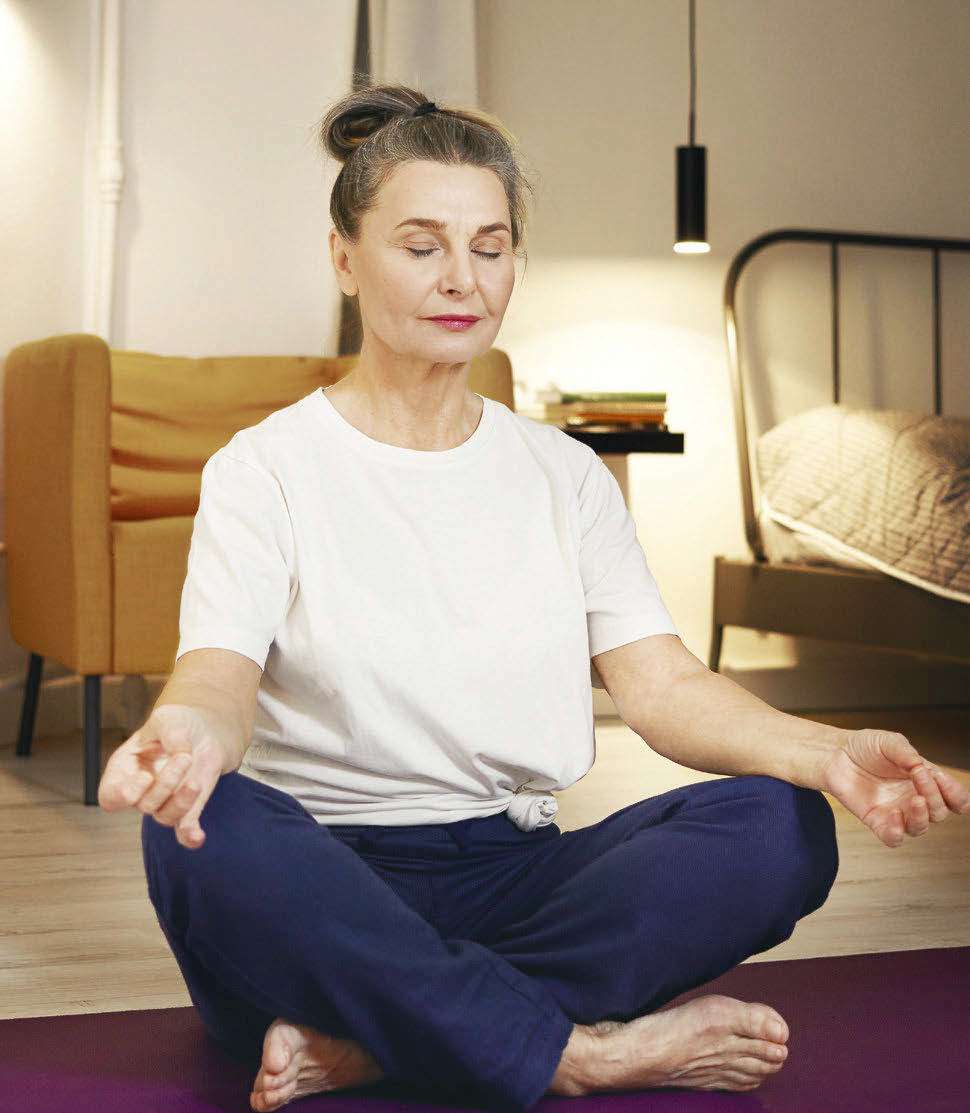Unhealthy lifestyles, natural aging of the brain, Alzheimer’s disease… As powerful as it is, our memory can be weakened by various factors. But, good news: “As several epidemiological studies have shown over the last few decades, it is possible to optimize one’s memory on a daily basis, to curb its decline, or even delay the onset of Alzheimer’s disease, by adopting certain ‘health rituals’”, assures Philippe Amouyel, professor of public health at the University Hospital of Lille, director of the Alzheimer Foundation and author of Anti-Alzheimer’s Guide: Secrets to a Healthy Brain (ed. Le Cherche-Midi, 2018).
For example, according to a Finnish study described in May 2022 in the journal personality and Individual Differences, which involved 383 participants aged 26 and 5,042 others aged 46, we should in particular avoid sinking into pessimism. “Pessimism would affect the ability to be active and to create new ideas, which could accelerate cognitive aging, and therefore memory decline”, explains Jutta Karhu, co-author of this work.
>> Read also: Gratitude protects health according to a new study
But importantly, “The association between pessimism and memory only concerned 46-year-olds, not 26-year-olds. Therefore, this trait may not begin to affect memory until after midlife. ” Regulating a potential pessimistic character to protect one’s memory would therefore only be an effective strategy after the age of 45. Fortunately, as other studies have shown, other gestures can help at any age.
“Stress impairs the retrieval of memories stored in memory”
Enable Default Mode Network
For a memory at the top, it is important to spare slots for disconnecting from the internet. And for good reason : “the quasi-permanent stimulation of our brain can hinder the proper functioning of a set of cerebral regions co-activated during states of rest. It’s the default mode network, which kicks in when you give free rein to your thoughts. However, this network is very important for the construction of mental simulations based on autobiographical memories and projections into the future”. explains neuropsychologist Francis Eustache.
Identified in 2001 by American researcher Marcus Raichle (Washington University School of Medicine), and made up of several regions distributed throughout the brain (posterior cingulate cortex, precuneus, ventral and dorsal medial prefrontal cortex, inferior parietal cortex, etc.), the Default mode network is also essential for the proper functioning of emotions and introspection.
Preserve memory: sleep well and enough
During work published in July 2022 in the journal sleeping, Canadian researchers looked at 26,363 people aged 45 and over, followed for three years, some of whom developed, during the study, insomnia, a disorder characterized by difficulty falling asleep or nocturnal awakenings frequent. Result: the latter had a 70% greater risk of suffering a deterioration of their memory, compared to those who had kept a good sleep.
Sleep is important for memory in several ways: “During slow sleep [cinquième et dernier stade d’un cycle du sommeil, NDLR] specific cerebral rhythms occur which make it possible to establish connections between neurons, and thus to consolidate the neuronal traces of the recorded information. In addition, sleep allows the brain to maintain a certain balance necessary for optimal cognitive – and therefore memory – functioning”. develops neuroscientist Thanh Dang-Vu, who led this study.
Sleeping well could also protect against Alzheimer’s disease: work published at the end of 2019 in the journal Science have made it possible to analyze the brains of thirteen sleepers and have shown that, during sleep, the cerebrospinal fluid in which the brain is bathed enters it then comes out in waves, which makes it possible to evacuate certain substances favoring the disease of Alzheimer’s disease (especially the β-amyloid peptide).
“Sleep allows the brain to maintain a certain balance necessary for optimal cognitive functioning”
Cheat sheets on the plate
It is important to consume sufficient quantities of several types of nutrients essential for the proper functioning of neurons. “Long-chain omega 3, present in fish, but also antioxidants, such as vitamins E and C, carotenoids and polyphenols, contained in many fruits and vegetables (orange, lemon, carrot, tomato, watermelon, raspberry …), and vitamin B9, which is found in cabbage or spinach”, says Cécilia Samieri, nutritional epidemiologist at the Bordeaux Population Health Research Center.
These nutrients are all found in large quantities in the Mediterranean diet (rich in fruits and vegetables, fish and olive oil). “The benefit of this diet for memory – and the brain in general – is widely validated”, emphasizes Philippe Amouyel.
>> Read also: Video games: gamers have higher brain activity in certain regions of the brain
In a meta-analysis published in July 2022 in the journal Frontiers in Nutrition, South Korean scientists reviewed the results of 26 cohort studies (nearly 135,000 participants in total) and 5 randomized clinical trials (895 people) that evaluated this diet. Conclusion: high adherence to the Mediterranean diet was associated with a 35% and 39% lower risk of mild cognitive impairment and Alzheimer’s disease, respectively, than in the group adhering the least.
That said, notes Cécilia Samieri, “follow the recommendations of the National Health Nutrition Program [Cinq fruits et légumes par jour, poisson deux fois par semaine…, NDLR] also suitable”.
In addition, food supplements, sold in pharmacies and on the internet, promise to boost memory, delay memory decline or prevent Alzheimer’s disease. However, in 2019, after reviewing several such products, the magazine 60 Million consumers concluded that “many of them are useless, even dangerous” . In fact, health authorities only recommend food supplements in the event of a deficiency in certain nutrients essential to the proper functioning of memory (vitamin D, omega 3, etc.). Abuse of it can expose you to certain risks.
Thus, an overdose of vitamin D in children can induce “hypercalcemia (excessive level of calcium in the blood) which can have serious consequences, such as kidney damage (deposition of calcium in the kidney)”, warns ANSES. Hence the advice to consult your doctor beforehand.
Stimulate your brain
“Even in adulthood, activities that stimulate the mind can help improve memory,” point out American researchers in a study published in early 2022 in the journal SSM – Population Health. The team analyzed data from more than 12,000 Americans between the ages of 24 and 32. She concludes that, on average, people who practice a stimulating profession involving analysis and social interactions have a better episodic memory (memories) and a more efficient working memory.
“Each increase of one unit in terms of professional analytical skills and social interaction was associated with a significant increase in memory”, specify the authors. But it’s not just the stimulating professions and social interactions: reading, learning a new language, training in a new skill (photography, sewing, etc.), travel, museums, etc.
“Any intellectually stimulating activity can help, especially if it takes us out of our comfort zone,” emphasizes Philippe Amouyel. And explain: “Learning new information and interacting with others stimulates the formation of new neuronal connections, which can compensate for age-related neuronal losses and thus maintain memory at its best.”
Move regularly
“Physical activity allows a good blood supply to our brain, and thus its good oxygenation and its supply of glucose. In doing so, it promotes optimal functioning of the brain, and therefore of memory”, enlightens Philippe Amouyel.
In addition, exercise, and in particular endurance, would induce the release of proteins beneficial for the growth and survival of neurons, and therefore for memory (BDNF, VEGF, etc.). Finally, some sports that involve learning new movements (dance, tai-chi) directly solicit memory.
The benefits of physical activity have been further demonstrated by a Chinese meta-analysis published in August 2022 in the journal Neurology, which analyzed the results of 38 studies involving more than 2 million participants in total. Indeed, during this work, it emerged that moving enough is “significantly associated” to a lower risk of dementia (one of the symptoms of which is memory loss) and Alzheimer’s disease, which was respectively 17% and 13% lower than in sedentary people.
The WHO recommends adults at least 2.5 to 5 hours per week of moderate-intensity activity (walking, gardening, etc.), or 1.5 to 2.5 hours of sustained-intensity activity (jogging, brisk swimming, etc.). ).
” It is possible to optimize one’s memory on a daily basis, to slow down its decline, and even to delay the onset of Alzheimer’s disease.
Manage stress to preserve memory
A Brazilian meta-analysis published in 2020 in the journal Trends in Psychiatry and Psychotherapy has confirmed: chronic stress (related to work, personal concerns, etc.) is one of the major enemies of memory. The researchers looked at the results of 13 studies that involved a total of 962 participants. Most of this work aimed to measure the impact of stress induced 15 to 20 minutes before a memory test. Conclusion : “The studies reviewed indicate that stress impairs the retrieval of memories stored in memory,” note the scientists.
“Stress is harmful not only in the short term, because it decreases the ability to concentrate and take in new information, but also in the long term, because it damages the health of the brain”, warns Francis Eustache.
To reduce stress, several simple solutions can help: get enough sleep, practice regular physical activity or adopt a relaxing activity (yoga, meditation, etc.). A 2021 US study, described in the journal Frontiers in Psychology and which involved 178 students, showed that a 25-minute meditation session three times a week for 8 weeks increases the score measuring the ability to recall information stored in working memory by 9% short term.
We want to say thanks to the writer of this write-up for this amazing web content
How to preserve memory with simple gestures?
Find here our social media profiles , as well as the other related pageshttps://nimblespirit.com/related-pages/





